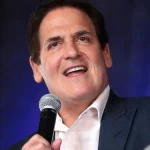
In Shark Tank Season 17 Episode 6, entrepreneurs Joe Sasto, a celebrity chef, and Sean Knecht entered the Tank to pitch Tantos, a snack brand that makes pasta-inspired chips.
Their idea was born from Joe’s observation: pasta left under heat lamps in his restaurant crisped into little crunchy bites, and those bites tasted great.
They were asking for $150,000 in exchange for 10% equity. Their product line had four Italian-inspired flavors: Marinara, Pesto, Cacio e Pepe, and Classico.
However, on the surface, Tantos looked promising: a chef-led snack brand, a distinct flavor profile, some retail presence already, and traction to scale.
Why the Sharks Rejected Tantos—Daniel Lubetzky’s Role
Although the product was novel and chef-driven, all the Sharks passed, and Daniel Lubetzky was especially vocal about his concerns. Here’s a breakdown of what he and other Sharks said:
Daniel’s Own Bad Pasta-Chip Experience
- According to Shark Tank Blog, Daniel revealed that he himself had previously run a pasta chip company, and things had not gone well.
- That personal history made him deeply skeptical. It wasn’t just a theoretical risk. Instead, he had been there, done that, and he knew firsthand how brutal the snack business can be.
Cost Structure and Margins Concerns
- Daniel questioned the founders about their landing costs, pricing, and margin strategy. While the founders shared their costs and revenue numbers, Daniel felt the margins were too thin or too risky.
- Even with some traction, the cost dynamics of snack manufacturing, inventory, and distribution are notoriously tricky. Daniel, with his experience building KIND, knows product economics intimately.
Risk of Distributors
- Daniel has warned the founders about ruthless distributors. According to coverage, he told them that even if they scale, the relationships with distributors could erode margins.
- His concern wasn’t just about the product but about the go-to-market model. If Tantos has to depend heavily on big distributors, then power dynamics could turn against them.
Financial Return Doubts
- Although the founders reported $500K in revenue in their first year, their pitch showed a profit of just $54K.
- For an investor like Daniel, that return might not justify the risk or the time required, especially for a commodity-like snack.
Other Sharks Followed His Lead
- After Daniel voiced his deep concerns and eventually dropped out, Kevin O’Leary, Barbara, Daymond, and Lori also refused to invest.
- Barbara decided not to go alone when Daniel bowed out.
- Daymond and Lori also expressed concerns about the highly competitive snack market and the lack of a strong, defensible moat.
What Did Daniel Lubetzky Say?
Daniel was transparent about the perils: “I ran a pasta chip company from scratch, and it almost collapsed.” It was the message he conveyed, making it very clear that he’s not speaking of abstract risk but lived experience.
Thus, he also argued that distributors could be a “ruthless” partner, a warning that many entrepreneurs overlook. Moreover, he expressed concern about profitability and scaling.
He emphasized the competitive nature of snack aisles. It’s not only about making a novel snack. Instead, sustaining it, scaling it, and battling shelf space and cost pressure are very real.
Why Daniel Denied Investing?
Putting all that together, here’s why Daniel decided not to invest and how he reacted:
- Realism Over Romance: Daniel’s prior experience made him cautious. He was not swayed by the romantic chef story or the novelty of the pasta crisp idea. For him, the fundamental economics didn’t stack up, given what he’s seen before.
- Preserving Integrity: He didn’t want to throw money at a business just because he liked the product. He clearly believed that agreeing to invest under current terms would expose him to too much risk or low returns.
- Long-Term View: Daniel tends to invest with a long-term mindset. He wants to be “in the trenches” with companies, and not just write a check.
Why did the other sharks follow his lead?
Some of the reasons why the other Sharks followed Daniel’s advice:
- Kevin O’Leary: Known for being very metric-driven, he must have shared Daniel’s concerns about cost, margins, or long-term profitability.
- Barbara Corcoran: She often likes to co-invest or rely on someone else’s domain expertise. With Daniel out, she felt less sure about going solo in a potentially risky snack bet.
- Lori Greiner: Though she liked the flavors, she expressed fear about competing in the crowded snack market.
- Daymond John: Similarly, he recognized the challenges in scaling snack businesses and perhaps didn’t feel the risk-reward was favorable.
So, Daniel’s exit likely signaled to the other Sharks that this pitch, while creative, carried more risk than potential reward—and without his expertise backing it, it was a more challenging play.
Daniel Lubetzky’s Investment Philosophy
To understand Daniel’s decision, let’s reflect on his investing style:
- Daniel founded KIND Snacks, a very successful snack bar company.
- He emphasizes integrity and long-term thinking in entrepreneurs.
- He is known for honest but kind feedback.
- He also values transparency and self-reflection. He praised founders who openly accept their weaknesses.
Given all that, his rejection of Tantos was aligned with his core approach.
Takeaway
Tantos left Shark Tank without a deal. However, the feedback from Daniel and the other Sharks provided invaluable insight for Joe and Sean. Thus, they can rework the cost structure, streamline manufacturing, and even renegotiate supply chain contracts.
Moreover, with the added visibility and user validation, they might raise capital from other investors.



















